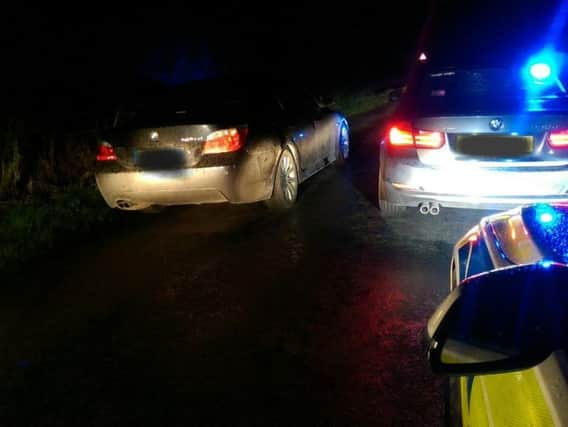The little-known medical conditions which could land you a £1,000 fine behind the wheel


The Driver and Vehicle Licensing Agency (DVLA) requires motorists to inform it if they suffer from any of the medical conditions on its notifiable conditions list.
-> The 35 medicines no longer available on NHS prescription from this monthBut an estimated one million drivers are on the road with conditions they should, but haven’t, told the DVLA about.
Advertisement
Hide AdAdvertisement
Hide AdWhile some of them are obvious, drivers are being urged to be aware of lesser-known conditions that could land them in trouble.
If you don’t tell the DVLA about a medical condition which might affect your driving you could be hit with a £1,000 fine.
If you’re involved in an accident because of your condition you could also face prosecution.
Some conditions seem obvious – a traumatic brain injury, suffering from convulsions or seizures, problems with your sight or alcoholism – but others are not so clear cut and with the DVLA list running to nearly 200 it’s worth checking if any of your health problems are on there.
Advertisement
Hide AdAdvertisement
Hide AdTo highlight just how complex the DVLA list is, Leasecar.uk’s motoring team has come up with a list of some of the more unexpected conditions that could affect your ability to drive.
A spokesman for the firm said: “If you suffer a broken limb or severe head injury that affects your memory or ability to perform everyday tasks, you’re probably not going to be able to operate a vehicle safely either.
“In these cases, it seems obvious that you’d have to let the DVLA know about it.
Advertisement
Hide AdAdvertisement
Hide Ad“There are some conditions however, that seem too unrelated to even consider spending the time to fill out a form to tell the DVLA about.
“These are the kind of conditions we’ve listed, to try and inform drivers and hopefully help many stay safe and avoid any fines – or even prosecution.”
Surprisingly, GOV.UK lists déjà vu as one of the health conditions that could affect your driving.
Advertisement
Hide AdAdvertisement
Hide AdWhilst most people will regard déjà vu as a common experience in healthy individuals, it is also associated with certain types of epilepsy – this experience of déjà vu is a neurological anomaly related to epileptic electrical discharge in the brain.
It is this medically induced déjà vu you need to inform the DVLA about.
Labyrinthitis